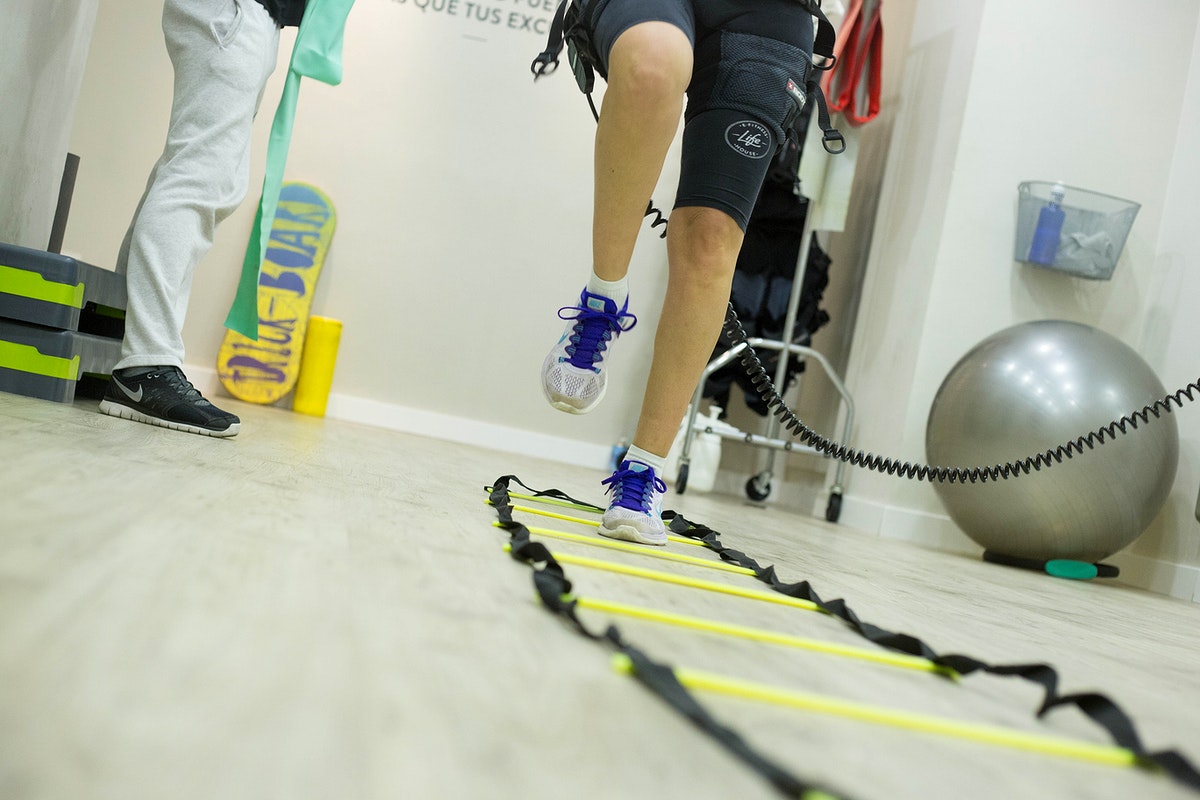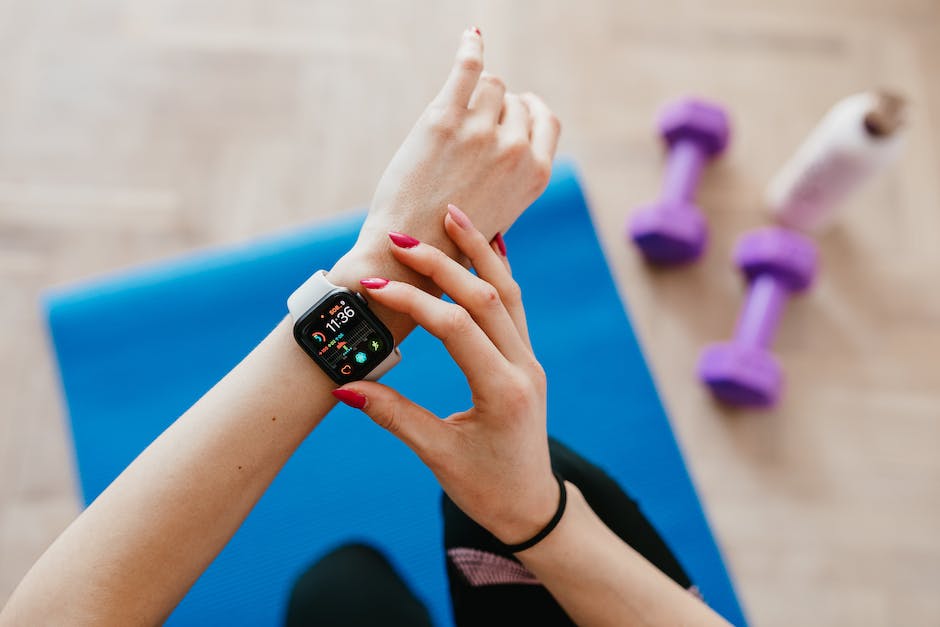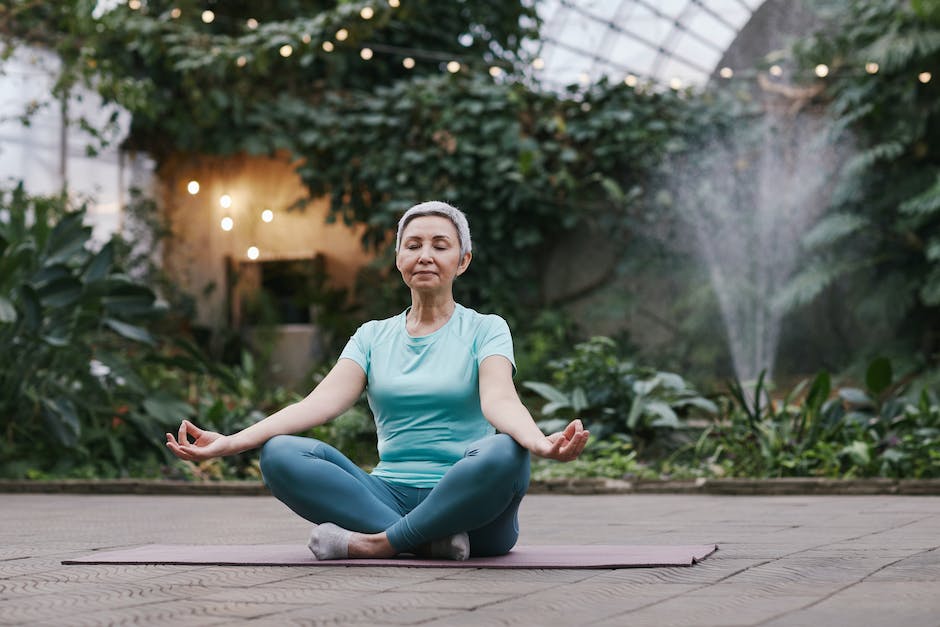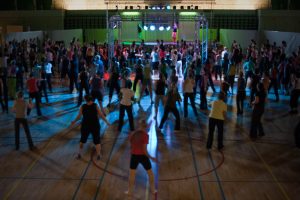
Fit and Fab: Why Fitness Is Good For You
Staying fit and healthy is a great resolution to make. With regular exercise, you can not only look better but also feel better. Here’s why you should make fitness part of your daily routine.
List of Content
- 1. Introducing Fitness: What Does it Mean to Be ‘Fit and Fab’?
- 2. The Benefits of Regular Exercise: Why You Should Make Time For It
- 3. Achieving Your Goals: 5 Tips for Successful Fitness Routines
- 4. Watch Out For These Common Workout Mistakes
- 5. Nutrition Matters Too: Tips for Fueling Your Body and Performance
- 6. Finding Your Motivation: Staying Fit and Fab Despite Challenges
- You Ask, I answer

1. Introducing Fitness: What Does it Mean to Be ‘Fit and Fab’?
Being physically “fit and fab” involves more than just looking good in a mirror. It means having a good level of general fitness, including endurance, muscle strength, and flexibility, as well as having a healthy body composition.
Fitness is an important part of overall health and wellbeing. It can help reduce the risk of many chronic health conditions, improve mood, increase energy levels and stamina, and generally help you live a healthier life.
The key to achieving and maintaining fitness is making it part of your daily life. Here are some things you can do to get started:
- Exercise regularly: Aim to do some form of exercise, such as jogging, swimming, or cycling, at least three times a week.
- Eat a balanced diet: Make sure you’re getting plenty of fruits, vegetables, fibers, and proteins in your daily diet, and avoid processed foods.
- Get enough sleep: Get at least seven to eight hours of restful sleep each night.
Sticking to these small steps will help you become “fit and fab” in no time. And remember, striving for physical fitness is a lifelong journey, so start incorporating these lifestyle changes into your daily routine, one small step at a time.

2. The Benefits of Regular Exercise: Why You Should Make Time For It
Target Audience: Everyone
Physical Benefits
Regular exercise can have a profound effect on your physical health. The main physical benefit from exercising is the increased physical strength, flexibility, coordination, and balance. Additionally, exercise has been found to improve your metabolic health, helping to regulate blood sugar, reduce metabolic syndrome, reduce inflammation, and improve cholesterol levels. Finally, exercising is one of the best ways to reduce your risk of chronic diseases like heart attack, stroke, cancer, and diabetes – as the exercise strengthens the large muscles in the body, counteracting the constant wear and tear on the body from everyday activities.
Mental Benefits
Exercising can do wonders for your mental health as well. Exercise releases endorphins that help to improve your overall mood, reduce stress, and increase self-esteem. In addition, exercise is a great way to better manage and lessen symptoms of anxiety and depression. It also helps to improve concentration and focus, reduce feelings of tiredness, and increase cognitive skills such as creative thinking, problem solving, and memory.
Time Management Benefits
If you’re having trouble managing your time, making a commitment to regular exercise can help. A regular exercise routine helps you to create a plan and stick to a dedicated time for exercising. After awhile, this habit will become a fixed part of your routine, and you’ll naturally make room for it when scheduling your day.
The Bottom Line
- Regular exercise can help you maintain a healthy physical and mental balance.
- It reduces the risk of chronic and infectious diseases.
- It improves your level of energy and productivity.
- It helps to manage your time in a more effective way.
As you can see, there are many benefits to making time for regular exercise – so why not make it a priority and start reaping the rewards?
3. Achieving Your Goals: 5 Tips for Successful Fitness Routines
Set Attainable Goals: The most successful fitness routines are those that have achievable goals. Setting realistic goals that you can easily measure and reach will help you maintain your motivation and stay on track. Don’t be afraid to modify your goals when needed.
Plan Ahead: Having a plan of action is key to reaching your fitness goals. Make sure to plan ahead what exercises you’ll do on which days. Write down your workout schedule and stick to it. To make things easier, you can use a fitness app or join a class to help you stay organized.
Stay Motivated: Sticking with your fitness routine is hard, but it’s even harder when you don’t feel motivated to do it. Find ways to stay motivated by working out with a friend, using rewards for completion, or setting small goals that will generate quick results. Changing things up from time to time will also help.
Allow Yourself to Rest: Remember that it is very important to take a break from your fitness routine in order to give your body a chance to rest and recover. So set aside time to take some rest days and don’t forget to get enough sleep. This will help you recharge and keep pushing forward when you come back to the routine.
- Set Attainable Goals
- Plan Ahead
- Stay Motivated
- Allow Yourself to Rest
4. Watch Out For These Common Workout Mistakes
1. Doing Too Much Too Soon: It is easy to get excited about working out and go all out every time but it is important to take it slow. Doing too much too soon can result in muscle soreness, fatigue and even injury. Start with lower intensity workouts and gradually increase intensity and duration so that your body can acclimatize.
2. Not Warming Up: It is important to warm up before exercise in order to get your body ready. Warming up prepares your joints, muscles and connective tissue for activity. A few minutes of stretching and some light cardio can help you perform better and prevent injuries.
3. Improper Form: In order to maximize performance and minimize injury it is important to use proper form while doing exercises. Using proper form ensures that you are using the right muscles and that the exercise is being done in a safe and effective manner. Read up on proper exercise form and ask a trainer or instructor if you’re not sure.
4. Skipping Recovery: Working out puts a lot of stress on your body and it is important to give your body adequate rest in order to stay healthy and prevent injury. Rest days are just as important as exercise days so make sure to give your body time to recover between workouts. Think about having 2-3 active days and 1-2 days of complete rest.
- Adequately stretch between sets.
- Incorporate one rest day in your weekly exercise regime.
- Ensure proper form while exercising.
- Don’t push yourself too hard.
5. Nutrition Matters Too: Tips for Fueling Your Body and Performance
Tip #1: Get Enough Calories: Eating enough calories is important for sports performance. You may need to eat more than normal when playing in multiple games or exercising for long duration. If you’re not eating enough, your energy levels and performance will suffer. To ensure your getting enough calories, track your intake and know your needs.
Tip #2: Eat Seasonal and Local: Taking advantage of seasonal and local produce is a great way to ensure you’re getting your essential nutrients. Eating local foods can be cost effective and also help reduce your carbon footprint. Eating fresh fruits and vegetables, and including a variety of whole grains, lean proteins and healthy fats can guarantee a balanced and nutritious diet.
Tip #3: Strive for Variety: Strive to include a wide range of healthy foods into your diet to ensure you are meeting all your nutrient needs. Your diet should include plenty of fruits, vegetables, whole grains, lean proteins, healthy fats and beverages. Try to avoid processed foods as much as possible and opt for natural alternatives.
Tip #4: Fuel Before and After Exercising: Eating the right foods before and after exercise can help your performance. Before you exercise, focus on eating slow-digesting carbohydrates, such as oatmeal or toast, that can provide you with energy and help maintain your blood sugar. After your workouts, focus on consuming protein and carbohydrates to help with recovery.
It’s important to recognize the importance of nutrition when playing sports. Eating correctly can help you perform better and stay healthy. Try to stay mindful of your nutritional needs and fuel your body properly.
6. Finding Your Motivation: Staying Fit and Fab Despite Challenges
We all have times when sticking with a fitness routine can be a challenge. Everyone has those moments when life gets busy and you don’t feel like exercising. Whether you’re feeling out of motivation or struggling to stay consistent, these tips will help you stay the course.
Make it count. Spend time doing activities you enjoy. Not only will this make your workouts more enjoyable, it will also help you stay focused. Find activities that stimulate your brain, such as a new yoga class, a new video game or exploring a park. This activity will also help with goal-setting and reward systems.
Bring on the rewards. Set goals and rewards for yourself to stay motivated. Treat yourself after a good workout with a massage, new shoes or a shopping spree. This will give your motivation an extra boost.
Get social. Working out with a friend or a group can be a great way to stay motivated. Having someone to talk to in between sets or to share your progress with can motivate you to keep going. You can also be a source of motivation for your friends too!
- Make it count.
- Bring on the rewards.
- Get social.
You Ask, I answer
Q: What is fitness?
A: Fitness is the ability to perform physical activity with ease and finding the energy to stay healthy and productive. It involves engaging in exercise, functional movements, and making healthy lifestyle choices.
Q: What are the benefits of fitness?
A: Participating in fitness can lead to improved physical health, mental health, and even emotional well-being. Exercise can help reduce stress, improve energy levels, build muscle and bone strength, increase cardiovascular health, reduce the risk of common diseases (such as heart disease and diabetes), and even help with weight loss.
Q: How often should I be active?
A: The Centers for Disease Control and Prevention recommends adults should aim to get at least 150 minutes (2.5 hours) of moderate-intensity aerobic activity or 75 minutes (1.25 hours) of vigorous-intensity aerobic activity each week. Additionally, adults should aim to do some type of muscle-strengthening activity each week.
Q: What should I do to get started on fitness?
A: First, it’s important to start off small and build up gradually. If you have not exercised in a while, start by doing 10 minutes a day, and try to increase your physical activity gradually. Also, it’s important to pick exercises you enjoy doing, and to switch up your routine. Try out different workouts, and don’t be afraid to try new activities such as yoga, group fitness classes, and other kinds of sports. Additionally, it can be helpful to find an accountability partner or a fitness coach who can help keep you motivated and help you find exercises you enjoy.
In short, keeping yourself fit and healthy is not only a way to look good, but it’s also a great way to maintain your emotional and physical well-being. So take the time today to add some fitness into your life and watch as both your physical and mental health improve!


